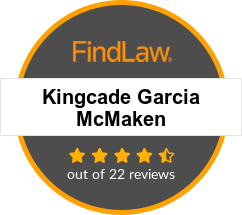What happens if assets are not disclosed in bankruptcy?
Bankruptcy is a legal tool that can offer a fresh financial start. This legal tool comes with the ability to discharge debt and move forward. In order to qualify for relief, the law requires the applicant to disclose not just their debts, but also their assets. But what happens if the applicant fails to disclose all of their assets? Whether by honest mistake or an intentional attempt to hide the assets, the consequences can be serious.
In a recent example, tennis star Boris Becker faced allegations that he intentionally hid asset during his bankruptcy. Although his case moved forward in London, the basics would unfold in a similar manner here in the states. In this situation the courts claimed he used two strategies in an attempt to hide assets. First, in an alleged attempt to keep the assets out of bankruptcy he transferred assets to two individuals, his ex-wife and his estranged wife. Then he failed to report another set of assets that included a property in Germany and shares in a tech firm. As a result of these efforts to keep assets out of bankruptcy, the court sentenced the tennis star to more than two years imprisonment.
As noted above, the same type of case here in the United States could also lead to prison time. Concealment of property during a petition for relief through bankruptcy can result in criminal charges. These can result in penalties that include additional fines and imprisonment. In order to establish a case, the government would need to show the following three elements:
- The applicant for bankruptcy relief was in fact going through bankruptcy at the time of the alleged offense.
- The applicant fraudulently concealed the property.
- The property was part of the estate that was going through bankruptcy.
Property that is part of the estate is generally defined as property that belongs to the applicant and includes any interest that they may have in property at the time they filed the bankruptcy petition with the court.
What property and assets should I list when going through bankruptcy?
Those going through a Chapter 7 bankruptcy generally need to disclose the presence of three types of property: personal, real, and intangible. Personal property includes material goods like vehicles and artwork. Real property is land and improvement thereon, like buildings. Intangible property is a bit more difficult to define. These types of assets are those that have value but are not physical in nature. We cannot see them like we see a home, but they still effect one’s finances. They can include alimony or retirement savings as well as child support and digital assets.
Not every listed asset is part of the bankruptcy liquidation process. Certain assets are exempt. An attorney experienced in this area of law can review your assets and discuss how the process will apply in your situation.
















